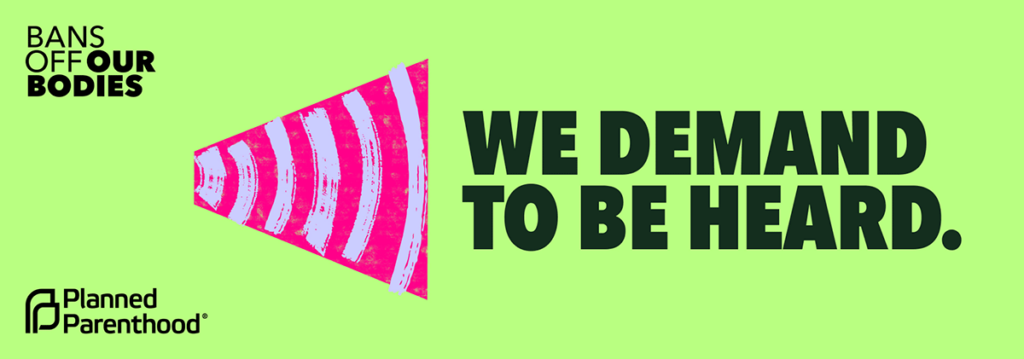With abortion access high on the agenda during this election year, Planned Parenthood Federation of America (PPFA) and Planned Parenthood Action Fund are launching a campaign to galvanize a new generation of activists in support of reproductive rights.
The reproductive health organization has revamped its platform “Bans Off Our Bodies,” which debuted in 2019, this time with a more diverse, wide-reaching approach that addresses the current national climate. The timing is deliberate, as in addition to the presidential election in November, the Supreme Court is expected to decide this month on the first major reproductive rights case since the 2022 Dobbs ruling, which ended the federal right to abortion.
Developed by women-owned agency Schaaf, the revamped “Bans Off Our Bodies” campaign will comprise out-of-home, social media and activations at events across the country, starting with Governors Ball in New York this weekend.
Planned Parenthood’s goal is to create a grassroots movement that “encourages people to use their voice and stand up for reproductive freedom,” said Kendra Schaaf, the agency’s founder and CEO. The agency declined to disclose this year’s ad spend.
The conversation around reproductive rights has shifted since Planned Parenthood introduced “Bans Off My Body” in 2019. In the two years since the Dobbs ruling, which overturned the Roe v. Wade decision that had guaranteed a national right to abortion, 21 states have banned all or some access to abortion. Meanwhile, other reproductive health and rights, including access to birth control and IVF treatment, have come under attack.
By the end of June, the Supreme Court is also expected to issue a ruling on a case that could limit access to the abortion pill mifepristone.

Planned Parenthood hired the Schaaf agency late last year to refresh the “Bans” platform and become more relevant for a situation in which abortion access is even more limited. The subtle shift in campaign title using “Our Bodies” instead of “My Body” reflects the “more holistic” approach that targets a wider audience, including women, men, trans and nonbinary people aged between 18 and 40, Schaaf explained.
“Our audience is all people who support reproductive freedom. It’s broader than abortion,” Schaaf said. “Today there are attacks on people’s bodies of all different shapes, sizes, creeds and colors.”

